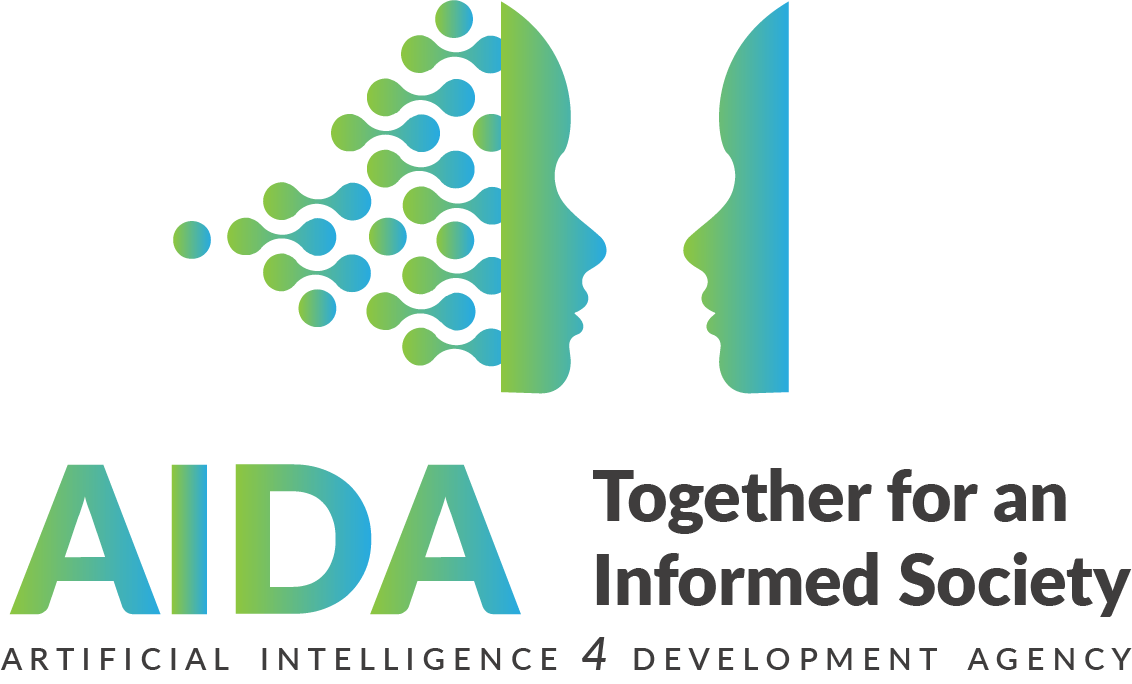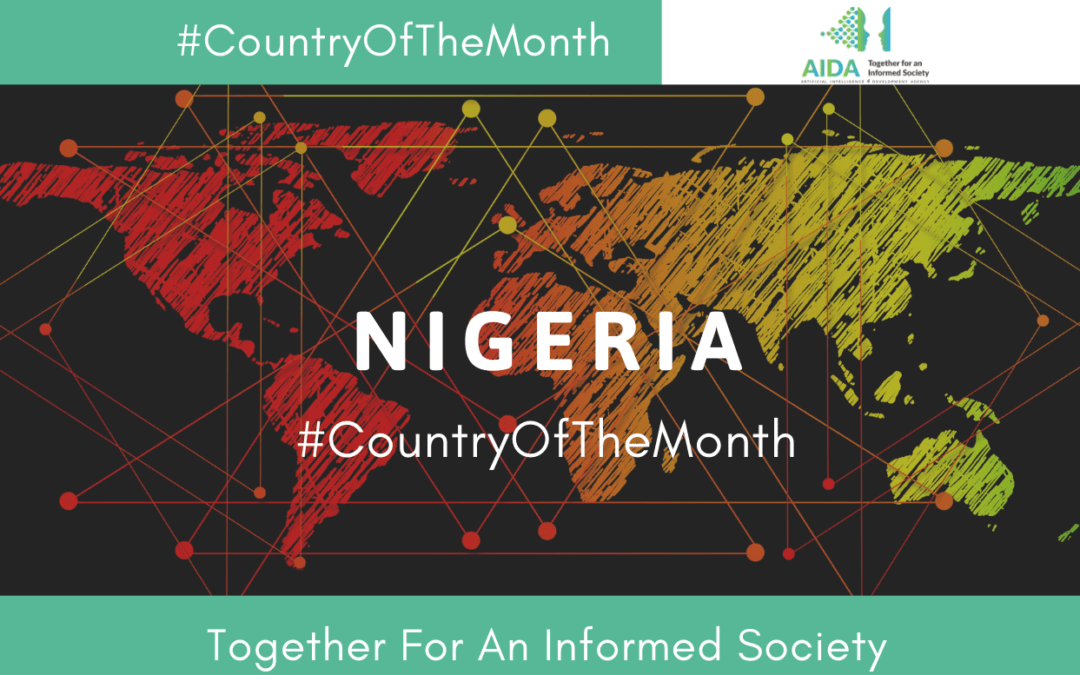AI readiness in Nigeria
Nigeria is an important regional player in Africa, accounting for about half of West Africa’s population, at 202 million people and one of the largest youth populations in the world. In addition, Nigeria is Africa’s biggest oil exporter with an abundance of resources and has the largest natural gas reserves. [1] However, with the uncertainties surrounding oil prices and impacts of covid on the global economy, Nigeria is prone to plunging further into poverty, with about 83 million people living below the poverty line. [2]
While Nigeria is a regional economic giant with abundant resources and human capital, the pace of innovation and Artificial Intelligence (AI) adoption has been slow for many reasons, ranging from lack of adequate knowledge about AI to infrastructure and access to data. According to the Oxford Insight Government AI Readiness, Nigeria ranks 138 globally and 20 in the region, trailing behind South Africa, Kenya and Ghana. [3]
Nevertheless, the government recognizes Artificial Intelligence’s potential to contribute to human efficiency and solve challenging problems in various sectors like education, health, finance, and agriculture. To this end, in November 2020, the government established the National Center for Artificial Intelligence and Robotics (NCAIR). NCAIR is a digital innovation office of the government tasked with researching and further understanding the application and use of emerging technologies like AI, Deep Learning, Extended Reality (XR-VR/MR/AR), Robotics and Drones, and the Internet of Things (IoT). [4]
Public sector-driven AI initiatives:
To support economic diversification and sustainability, NCAI is collaborating with relevant stakeholders and researchers to maximize and utilize the benefits offered by AI toward achieving its strategic roadmap plan. Presently, AI-driven solutions have been slowly integrated into different areas in the country, driven by both the public and private sectors. For example, the Lagos state government enforces traffic rules and regulations through an AI-powered Traffic Management Solution (TMS), which allows for real-time capture of video and picture, scans license plates and fines drivers who violate traffic rules. Since its deployment, the software has identified over 15,000 motorists, and data collected from the system has also facilitated criminal investigations processes. [5]
In addition, to contain the spread of covid-19 at airports, particularly at the peak of the pandemic in 2020, the government deployed AI robots at specific airports to reduce human contacts by performing repetitive tasks like temperature checks, profiling, and boarding passes [6].
Private sector-driven AI Initiatives:
Despite being disadvantaged in terms of limited access to AI training and infrastructure, most of the AI activities happening in the Nigerian ecosystem is driven by its primarily young population, which is the largest in Africa at 43%.
To solve one of Nigeria’s most significant challenges, which is access to an affordable and stable power supply, a problem that affects more than half of its population, Renewable Africa 365 is working with local communities to install solar power substations known as renewable energy microgrids. Microgrids can deliver electricity to small communities of 4000 people. The team built an AI system that identifies regional clusters in Nigeria where renewable energy microgrids are most viable and likely to impact the community. In addition, an interactive map acts as an interface to the system. [7]
In Agriculture, some farmers and agribusinesses are adopting technology into their operations to increase efficiency and productivity. One notable mention is the Nigerian AI startup company Airsmart Limited, which launched an AI software to help farm owners access actionable information such as type of crop to farm with the soil temperature and moisture, crop count on the farm, weed detection, and possible crop diseases. [8] These measures aim to drive efficiency in cost savings, enhance their business operations and improve their profitability.
Nigerian Banks have rapidly deployed AI tools into their operations to stay ahead of the competitive market and improve financial transaction processing. For example, in 2019, United Bank for Africa (UBA) launched its first AI chatbot named Leo. Leo is a virtual Banker, a chatbot created to meet their customers’ needs; Leo performs duties like helping customers transfer funds to friends and family, pay bills, open new accounts, and other banking-related issues. [9]
Globally, the healthcare sector is evolving rapidly and experiencing a shift from a human-oriented to a technology-oriented era. Advancement in Artificial Intelligence has contributed positively to the efficiency of healthcare from early diagnosis and detection of illnesses to improved medical research on treatments. The healthcare sector in Nigeria is complex, faced with multiple challenges such as high infant mortality rate; Ubenwa, a Nigerian-Canadian startup, is leveraging AI to create accessible clinical-grade infant monitoring tools. Ubenwa is a software that analyses a baby’s crying to detect early signs of anomalies such as asphyxia or brain injury. [10] Another tech-non profit, “Help Mum”, a Nigerian based Non-governmental organization focused on delivering low-cost health information to pregnant women, clean birth kits for women in rural communities by relying on intelligent mobile technology, recently received 50,000 dollars as one of the winners of the 2021 Waislirz Global Citizen Award [11]. The prize money will further support the organization in implementing its advocacy efforts and curb the early infant and maternal mortality rate among pregnant women and babies.
Bridging the AI gap in Nigeria.
As the Nigerian AI space continues to pick up slowly, many underlying challenges such as funding AI research in universities, capacity building, daa availability, digital infrastructure, and development of a human-centred National AI policy will need to be addressed for the country to enjoy the benefits of deploying AI fully.
AI-driven solutions have been a powerful driver of economic growth in low-, middle-and high-income countries. In addition, they have contributed to developing strategies to combat the COVID-19 pandemic and other health-related problems like early maternal mortality, preventable maternal deaths among women in Africa and disease prevention and diagnosis. However, with this technological growth sprout comes a growing need for expertise and regulation. Therefore, there is an urgent need for the government to accelerate infrastructure development and build AI technical know-how through the NCAIR by partnering with tech giants, foreign startups as well as supporting local companies to develop AI skills that will empower its youths with relevant skills needed to drive business innovation in the fourth industrial revolution, and further provide job opportunities to its young population, curbing high unemployment rates in the country.
Written by Mfon Udechukwu, Social Media Coordinator
References:
[1] The World Bank in Nigeria. https://www.worldbank.org/en/country/nigeria/overview
[2] Ibid.
[3] Oxford Insights on Government AI Readiness Index 2020 https://www.oxfordinsights.com/government-ai-readiness-index-2020
[4] National Center for Artificial Intelligence and Robotics https://nitda.gov.ng/ncair/#
[5] Business Daily: Lagos deploys cameras to combat traffic violation https://businessday.ng/news/article/lagos-deploys-cameras-to-combat-violation-of-traffic-rules/
[6] Abuja Airport deploys AI Robots to scan passengers, take body temperature. https://humanglemedia.com/abuja-airport-deploys-ai-robots-to-scan-passengers-take-body-temperature/
[7] Tackling Energy Poverty in Nigeria through Artificial Intelligence https://omdena.com/blog/artificial-intelligence-in-nigeria/
[8] This Day Live: Firm unveils platform to boost Agriculture in Nigeria, Africa https://www.thisdaylive.com/index.php/2020/11/18/firm-unveils-platform-to-boost-agriculture-in-nigeria-africa/
[9] Ada and Leo: AI in the Nigerian financial sector https://certaspace.com/blog/blog_view/28/ada-and-leo-ai-in-the-nigerian-financial-sector
[10] Ubenwa: https://www.ubenwa.ai/about-us.html#overview
[11] Nigeria’s help Mum wins $50,000 from Waislitz Global Citizen Award https://businesspost.ng/general/nigerias-helpmum-wins-50000-from-waislitz-global-citizen-award/

